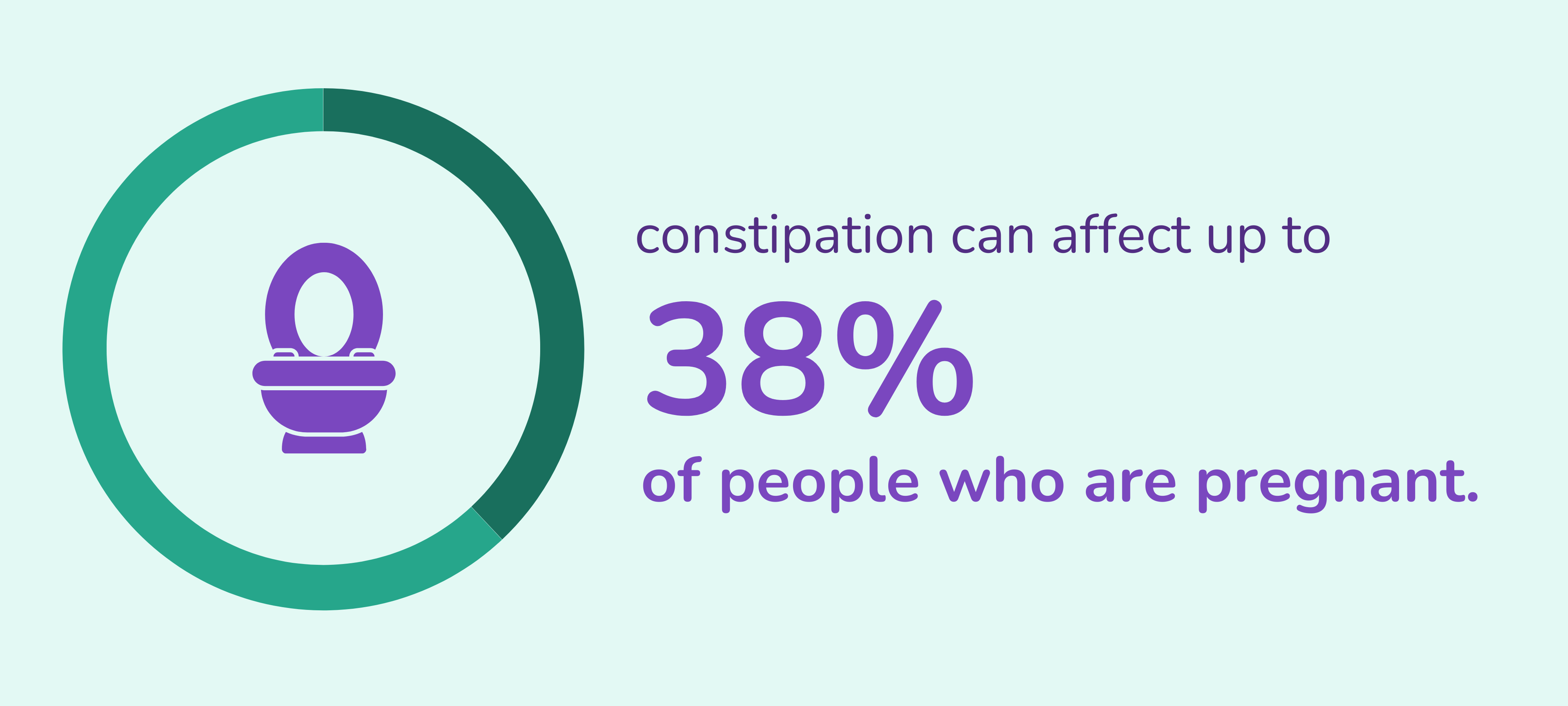Relieving the Strain During Pregnancy & Breastfeeding
Disclaimer: This page houses important information and resources pertaining to constipation during pregnancy and while breastfeeding, including links to our evidence-based Fact Sheets. However, the resources here should not replace the care and advice of a medical professional.
It’s common, but uncomfortable, to experience constipation when pregnant – in fact, it’s the 2nd most common gastrointestinal complaint about pregnancy! Constipation can start in the first trimester and worsen throughout pregnancy as progesterone levels rise. Other culprits include prenatal vitamins that contain iron, decreasing activity levels as pregnancy advances, low fiber intake, and inadequate water intake. While constipation often improves after delivery, it may continue to be an issue if you take certain medications for post-partum pain or prenatals while breastfeeding. Some women may have a pre-existing history of chronic constipation, in which they experience certain symptoms for more than 3 months at a time. For these women, constipation and its treatment needs to be navigated before, during, and after pregnancy. Understanding constipation and its treatment is essential for women and their developing babies, no matter if it is an occasional or chronic issue.
“Constipation is a common symptom during pregnancy. The majority of cases are simple constipation that occurs due to a combination of hormonal and mechanical factors affecting normal GI function. However, a number of women suffer from constipation prior to conception and find their symptoms worsen during pregnancy.”
— Cullen & O’Donoghue. Best Pract Res Clin Gastroenterol. 2007;21(5):807-18.
For some women, dietary changes such as increasing fluids and eating high fiber foods can help prevent constipation, as can regular exercise. Although occasional constipation is common, talk with your health provider if it has been or becomes an ongoing issue. Our resources will help you and your provider navigate constipation treatments so you can make more informed decisions for a healthier – and more comfortable – pregnancy.

Reference: Trottier et al., 2012
Join Our Functional Constipation Study
If you’re pregnant and have either chronic idiopathic constipation (CIC) or irritable bowel syndrome with constipation (IBS-C), please consider enrolling into our observational study to give moms-to-be better answers about how functional constipation and its management can affect a pregnancy and a developing baby. You will not be asked to take or change any medications, and you can participate from the comfort of your home.
Please see our library of resources below on constipation during pregnancy and breastfeeding.
Related Fact Sheets
Related Baby Blogs
External Resources
- American Gastroenterological Association: Constipation
- American College of Gastroenterology: Constipation and Defecation Problems
- Babycenter: Constipation during Pregnancy
- What To Expect: Constipation during Pregnancy
Partners
- Patient Education Genius
- PatientsLikeMe
- Society for Maternal-Fetal Medicine
- Society for Birth Defects Research & Prevention
- The Mighty
Stay in Touch
Our e-Newsletter brings you the latest information, news, and resources from the experts at MotherToBaby.
Join a Study
Expecting parents deserve better information about medication use in pregnancy and breastfeeding – and you can help by participating in a study.
Ask Our Experts
Call, text, chat, or email for a free personalized risk assessment on exposures in pregnancy and breastfeeding.

